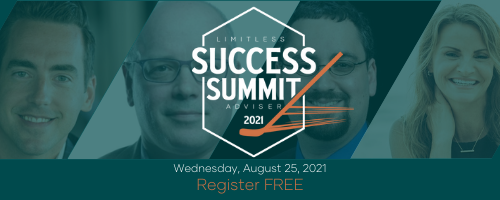Clients come to you for guidance on how to align their financial resources with the life they want to live. So, why will they sometimes hesitate, challenge or ignore your advice when you’re encouraging them to live a little?
The simplest answer I can offer is that sometimes the client’s money stories do not align with your financial advice. You can run all the projections, gather all the data, and print out charts until the cows come home, but unless the advice you’re giving is perceived as friendly to the voices in your client’s head, it will meet with resistance.
Your clients’ money stories represent their relationship with money, commonly formed in childhood. Knowing these can provide deep insight into how to better advise clients so that they can hear your advice in a way that helps them follow it.
I’m thinking of the widow who denied herself better glasses of wine even though her advisor says she could afford them– due to a lifetime of her husband espousing a fiercely frugal lifestyle Similarly, a well-funded retiree waited a year to buy a new car for his wife so he could secure a multi-car discount that covered the cost of upgrading his convertible’s roof from hand-crank to automatic.
In the cases where clients hesitate to follow your advice, it can be quite helpful to ask them what their decision is in service of, so that you and they are clear on the outcome their decision is intended to support.
You could ask the wine-loving widow, “Eunice, I keep hearing you say you’d love to drink better wine, but you can’t bring yourself to spend the money. As your advisor, I’m a big fan of being prudent, but I can also see that the actual risk of you running out of money, as a result, is almost zero. Given that we both see that on the page, I’m wondering what you gain by not spending that money?”
Now, pause and listen. Sit in silence and wait with rapt attention for what comes next, because it could fundamentally change the course of your client’s life.
Eunice, like many elderly widows, shares that she’s afraid she’ll run out of money in retirement and end up eating cat food in her final years.
Genuinely acknowledge that you hear and understand the client’s answer by repeating it back. Then follow it with what I like to call the ‘cost question:’ “Eunice, I hear you saying that not spending an extra $20 a glass on wine might be what saves you from eating cat food in retirement. But I’m wondering if you’ve given any thought to what that $20 a glass is really costing you?”
You can explain to Eunice that three more glasses of pricey wine each week will cost her portfolio less than $3,000 a year, and ask her to consider whether the money she is saving outweighs the joy of those rich cherry Merlots she’s missing out on.
Many clients will acknowledge what’s important to them while simultaneously clinging to not-so-conscious rationalizations that help them hold onto their disempowering money stories. If facts and figures don’t convince a client to follow your advice, more facts and figures aren’t likely to work. Instead, help the client shift from a scarcity story to one that better serves their goals.
“Eunice, if I run the numbers and they show that we can carve out $5,000 a year to start a First Class Fund for you, that you can use to buy great wine and splurge in special ways that feel good without having to worry that it means running out of money later, would that sound good to you?”
If Eunice is concerned things might change for the worse, acknowledge that this is possible and hold the plan accountable to achieving her goals. “Of course, we’ll review things regularly and if anything changes, we’ll immediately put the fund on hold.”
If the client still cannot follow your advice, the client’s money stories are just more compelling than your advice right now. Give yourself permission to acknowledge this without judgment, while continuing to create space for such conversations over time.
Learning the art of advice, and how to deliver trusted advice to clients in ways that help them align their finances with their life-enhancing goals, is a craft honed over time. It’s also one of the surest ways I know to deliver massive value to clients while building a wildly successful practice and life that you love.





